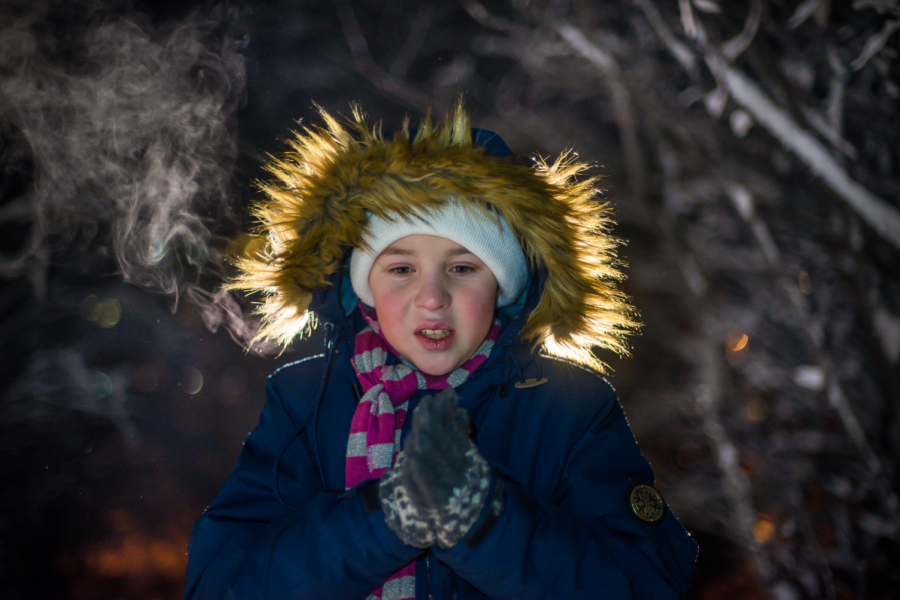Winter can feel like a cruel joke to many of us—but for those of us with ADHD, it often hits harder. The cold seeps into your bones, the sun clocks out early, and motivation gets buried under blankets of procrastination. So… do people with ADHD feel the cold more?
Maybe not physiologically (although some folks are extra sensitive to temperature changes), but emotionally and mentally? Absolutely. Winter tends to mess with our routines, energy levels, and already-fragile attention spans. Add in the natural ADHD cocktail of mood swings, anxiety, and a strong desire for sensory stimulation, and you've got a season that can feel like a months-long struggle.
So how can we survive winter without turning into a grumpy hibernating bear—or worse, spiraling into seasonal depression? Here’s your ADHD-friendly guide to staying cozy, sane, and kind of productive when the sun disappears and the cold sets in.
Why Winter Feels Harder with ADHD

Let’s be honest: winter can feel like being knocked out for an entire season. The sun disappears by 5 p.m. (or earlier), the trees look like sad skeletons, and the sky seems permanently set to “meh.” For many people, this seasonal shift brings a dip in mood. But for those of us with ADHD, the effects can be more intense.
We tend to rely on external cues and stimulation to keep us focused and regulated. When everything goes gray and lifeless, our brains can short-circuit. The earlier darkness screams “Bedtime!” even if it’s just 4:30 p.m., throwing our already shaky sense of time even further off balance. Pair that with the temptation to procrastinate (again), and it’s no wonder so many of us feel like we're wading through molasses.
Bears Do It Better: The Hibernation Fantasy
If you’ve ever envied bears, you’re not alone. They fatten up, find a cozy cave, and peace out for three months. Sounds like a dream, right? But humans don’t get to hibernate. We have to keep going—even when all we want is to wrap ourselves in a blanket burrito and ignore life until spring.
And here's the kicker: many people with ADHD struggle with sleep year-round. Winter doesn’t make that easier—it just robs us of light and serotonin while making our noisy brains even harder to quiet.
The key is learning how to mimic the spirit of hibernation—resting, slowing down, and nurturing ourselves—without completely shutting down.
ADHD Winter Survival Tips
Here are some tried-and-true strategies for staying “alive-ish” through winter when your brain is wired for sunshine and chaos:
1. Create a Cosy, ADHD-Friendly Environment
If you're going to be stuck inside more, make your space work for you. Cosy = comforting = dopamine.
- Add warm lighting (use yellow-toned bulbs or string lights—ditch the harsh overhead ones).
- Light a fire if you have a fireplace. If not, try a fireplace video on your TV or laptop—it’s weirdly effective!
- Use blankets, textures, and colors that make you feel safe and happy. Think: sensory joy.
2. Stimulate Your Senses—In a Good Way
People with ADHD are often hypersensitive to sensory input. That can be a burden, but it can also be a superpower if used right.
- Burn essential oils or use a diffuser. Scents like orange, cinnamon, clove, or pine can uplift and ground you.
- Try weighted blankets, fuzzy socks, or cozy loungewear to satisfy your need for tactile comfort.
- Listen to nature sounds, lo-fi music, or cozy playlists that help you feel anchored.
3. Eat Comfort Foods That Don’t Crash You

Winter makes us crave comfort foods—and that’s OK! But some can leave us foggy and sluggish.
- Try swapping mashed potatoes for mashed cauliflower or roasted root vegetables for a dopamine-friendly twist.
- Choose meals high in healthy fats (like avocados, nuts, and fatty fish) to support brain health and boost serotonin naturally.
4. Take Your Vitamin D
Vitamin D deficiency is super common in winter, and it can worsen ADHD symptoms like brain fog, low mood, and fatigue.
- Ask your doctor to check your levels and consider supplementing if needed.
- It’s literal sunshine in a pill—your brain will thank you.
5. Give Yourself Permission to Slow Down
You’re not being lazy. You’re syncing with nature.
- Winter is a natural time to rest, reset, and reflect. It’s okay if your productivity isn’t at full blast.
- Use the extra indoor time to start that creative project, read that book, or simply let yourself be.
- Reframe “slowing down” as healing, not failure.
Final Thoughts: You’re Not Alone
Winter might never be your favorite season, and that’s OK. But it doesn’t have to knock you out cold either. By understanding how ADHD interacts with seasonal changes—and by taking small steps to care for your mind and body—you can survive winter with your sanity (mostly) intact.
Remember: You’re not a bear, but you can still get through the season with a little extra rest, a lot of warm lights, and a steady stream of mashed cauliflower. Hang in there, friend. Spring is coming.





.svg)

.svg)


